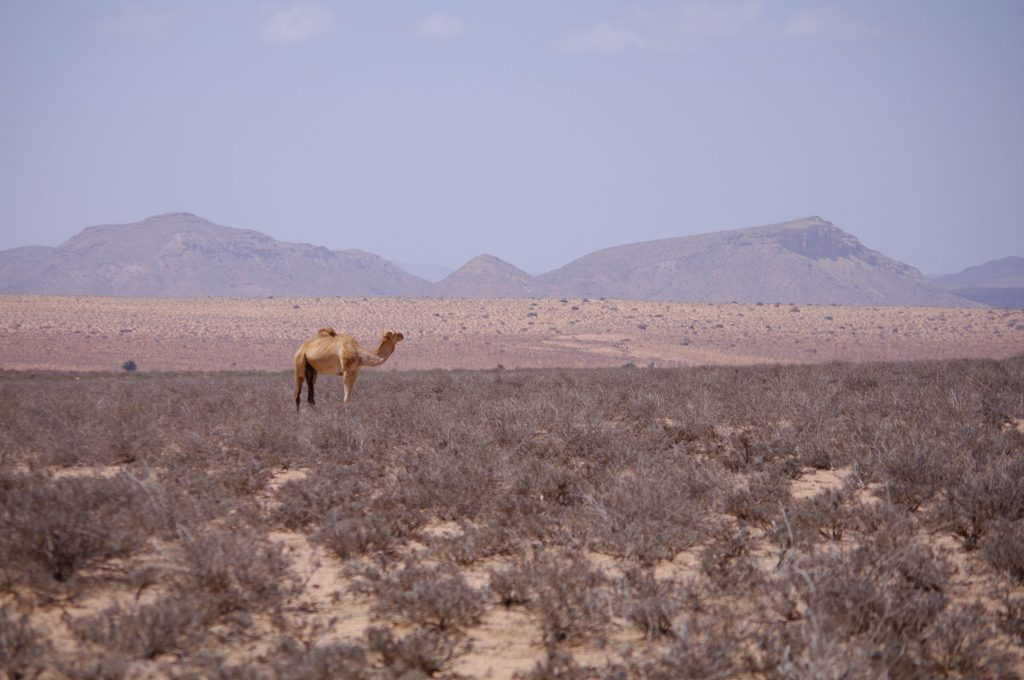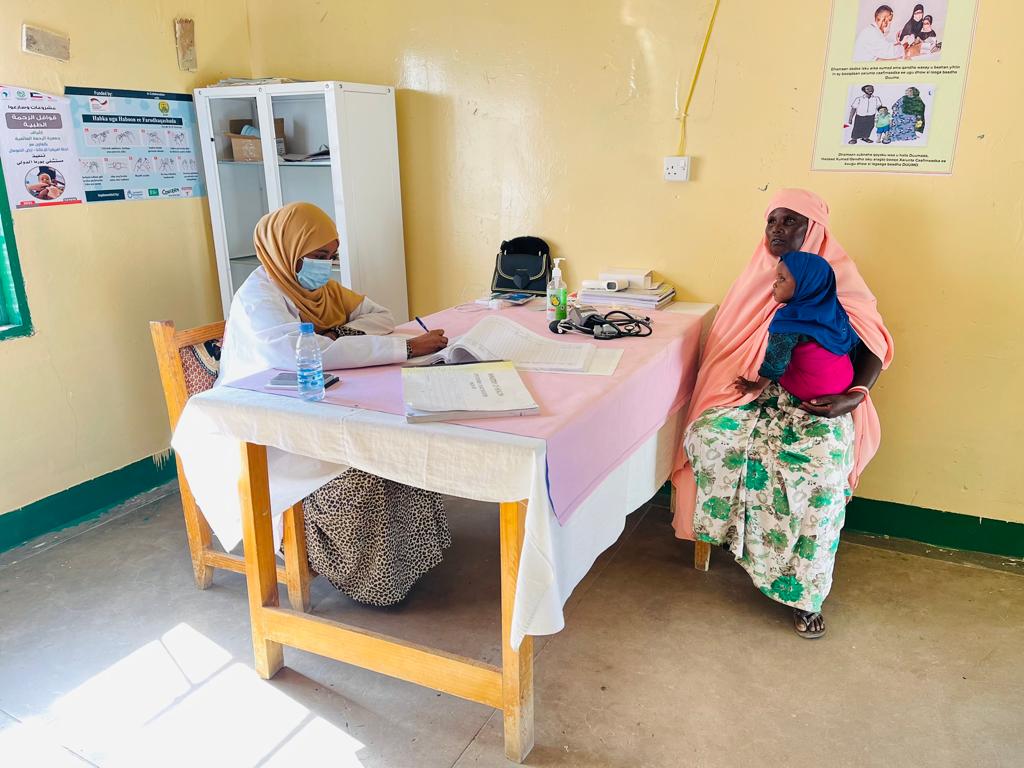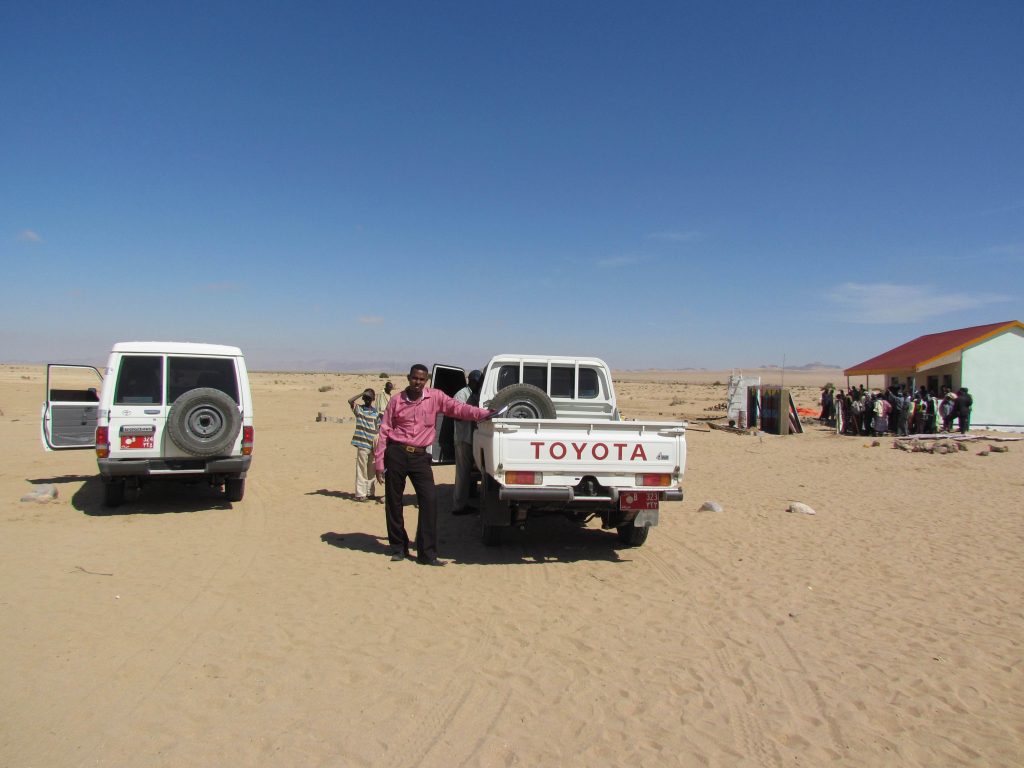
As the climate crisis unfolds, it is clear that its effects are profoundly unequal, often laying bare vulnerabilities caused by historical, economic, and environmental factors. To gain insights into how these challenges affect the communities we work with in Somaliland, and how we work with them to address these challenges, we spoke with Mohamoud Ali Bullale, our Country Director in Somaliland. Bullale, as he’s known among his team, holds extensive experience and firsthand knowledge of the challenges facing people in the region. Bullale was born and raised in Somaliland and has worked with communities since 2011, joining Health Poverty Action (HPA) in 2013.
Somaliland’s context is crucial to understand, as Bullale explains “over 50% of the national budget goes to the security sector, leaving little for development,” including healthcare spending. This structural imbalance poses challenges. We also recognise that traditional development assistance often perpetuates power imbalances, especially when donors are driven by their own political agendas. That’s why we are committed to collaborating with activists globally to expose and address power imbalances and exploitative economic systems which leave many governments struggling to fund healthcare.
By advocating for and standing in solidarity with communities facing inadequate healthcare and food access, we help them take control of their health. In Somaliland this looks like active community engagement, training and support for government health workers, and the establishment of new clinics to deliver long-term healthcare support to these communities.
Bullale’s commitment is clear throughout our discussion: “this is my community, so I support the health workers, the facilities and HPA.” Whilst he oversees programme implementation for Health Poverty Action, he also challenges power structures and emphasises communities’ needs when engaging with government officials and donors. As he puts it, “sometimes we are closer to the community than the government, so sometimes we get first-hand information from the community and challenge those in power. So, we talk to the government, and they might not agree, but we have to advocate for our people.” Bullale is determined to secure sustainable resources for the community’s wellbeing. As such, he also works to shift donor priorities towards community-driven agendas.

He explains: “Climate phenomena over recent years have made it hard for people to find water and grass for animals to graze. The rains failed for the last four rainy seasons. A swarm of locusts devastated Somaliland from June to September of 2022, destroying the crops and grass that existed”.
This has impacted Somaliland’s largely pastoralist rural communities acutely. Many have been forced to move, either to cities, or more likely, to internally displaced persons (IDP) camps. However, this displacement often fails to guarantee even basic food security. Bullale explains: “there isn’t [government] funding to support IDPs; the government depends on NGOs [non-governmental organisations] like HPA to provide support” to ensure these communities have basic health facilities and staff.

Health Poverty Action’s work has become critical in such scenarios, where it is not uncommon for children and mothers to be suffering from mild to acute malnutrition. We now operate in 43 healthcare facilities, 80% of which are in IDP camps, supporting the Ministry of Health with nutritional assistance like providing preventative, curative and rehabilitation services. Recognising the multifaceted nature of health, we address nutrition alongside other factors impacting on people’s wellbeing, including limited access to basic necessities within IDP camps.

Bullale also explains that our mobile teams travel to remote and satellite villages, transporting healthcare professionals whom we train and equip, along with essential healthcare supplies. Indeed, we’ve established six new healthcare facilities solely in the northern Sahil region. This reflects Health Poverty Action’s focus on marginalised groups often neglected by health and social development agencies.
We’re proud to have Bullale directing our Somaliland team. His motivation is clear: the belief in everyone’s right to good health and the urgent need for accessible healthcare. He actively listens to and represents the interests of people within marginalised communities, especially IDP camps. This kind of advocacy is crucial, especially as we confront the challenges brought about by the climate crisis, which impacts communities in diverse and unknown ways. Our work in Somaliland focuses on strengthening healthcare systems and ensuring that communities can access the necessary healthcare services. This is particularly important as we witness the disproportionate impact of the ongoing climate crisis on places like Somaliland.
You can support our work in Somaliland by signing up to make a regular donation today. £5 could cover the cost of fuel for community nutrition workers visiting IDP camps to provide support and information around health and nutrition; £22 could pay for one radio broadcast to raise awareness of health issues and wellbeing in the community.

